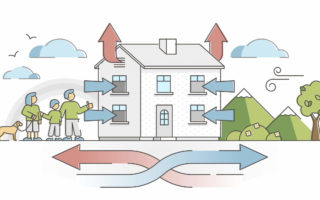Friendships are essential to child development. Socializing teaches children how to be independent of family and helps them prepare the foundation for developing healthy, trusting relationships in adulthood. Many children struggle during adolescence with their identity and understanding where they fit in.
This struggle makes them vulnerable to bullying and cliques, which is psychologically damaging and can lead to depression. Parents play an important role in teaching children the social skills necessary to form healthy friendships. For advice on how to help children become social, consider this Parent’s Guide to Teen Depression: Helping Teens Cope With Cliques.
Know the Difference Between Friends and Cliques
Understanding the difference between genuine friends and cliques is challenging for children. Adolescence complicates this understanding as children try to develop deeper relationships and figure out where they socially belong.
Friendships form organically around shared common interests. Having things in common gives a sense of support. Members of friends groups should feel free to socialize outside of the group without fear of being alienated. Cliques may form around common interests, but the social dynamic is restrictive. Leaders of cliques control who is “in” or “out” of the group. Cliques are centered around social status and assert this dominance by rejecting or ridiculing those individuals deemed not important. They are restrictive and don’t socialize outside the group.
Cliques are mean to their members, not just those outside the group. They commonly try to “fix” members by rejecting individuality and mandate what clothes to wear, how to act and give unwanted makeovers. If cliques feel that other well-liked peers pose a threat, they will make that threat feel excluded by bullying or stealing away that peer’s closest friends.
When children are bullied they attempt to hide the evidence. In the digital age, children deal with bullying online and in text messages. Doing an online background check will quickly reveal bullies and give parents an idea of who is causing trouble. Online databases like GoLookUp offer free background checks using reverse phone lookups, name searches, social media activity, and more.
Coping Strategies
Being excluded by peers is harmful to children when they try hard to fit in. It is equally stressful for children to navigate cliques in order to avoid being cast out of a group. Use these coping strategies to help children cope with cliques and acceptance:
Children need to feel accepted – children naturally feel a need to be accepted by their peers. This need develops during adolescence. Respect this need by not criticizing the desire to be included in a group. Remind children of other times they may have been angry with friends or family and how things changed. Emotions are momentary.
Encourage diversity: encourage children to develop multiple social groups. It is socially healthy to have friends from varied backgrounds such as school friends, friends from extracurricular activities, and neighborhood friends.
Help develop social skills: as children mature they need to learn that adolescent relationships require listening and empathy skills. Learning how to be kind, open, and honest with friends is essential to developing healthy relationships.
Encourage individuality: children need to value themselves as unique individuals. Help them understand that their looks, personality, and interests are unique to them. Teach them that acceptance is not based on having the “right” gadgets, fashion, or parties.
Children can be cruel to each other without realizing the psychological effects bullying causes. Criticism and exclusion can quickly lead to teen depression. Polaris Teenage Depression Treatment takes this commonly misunderstood issue seriously. With an adaptive, solutions-driven treatment method, Polaris Teen Rehab Center uses customized solutions to help every unique teen overcome depression.



